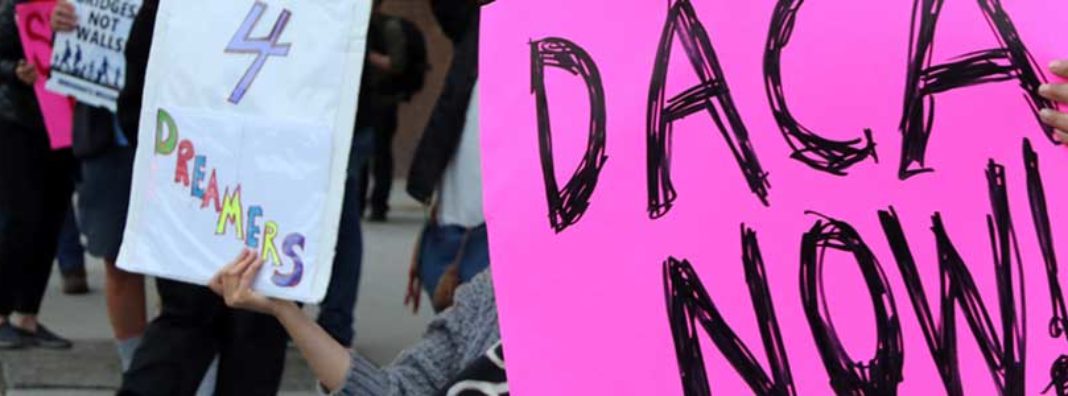
Last month, Fox News reported that 13 percent of “Dreamers” have an arrest record and highlighted that some of those arrests were connected to crimes like murder and rape. Many other right-leaning groups have pointed out the same figures. Unfortunately, these reports lack both context and accuracy. Dreamers are actually less likely to be arrested than U.S. citizens.
The reports are based on new numbers on arrest records for Dreamers published by the United States Citizenship and Immigration Services (USCIS). “Dreamers,” the common name for individuals brought to the United States illegally by their parents as children and now protected by the Obama-era Deferred Action for Childhood Arrivals (DACA) program, are at the center of the current immigration debate on Capitol Hill. That makes these numbers politically important for the outcome of the debate. At first, the numbers seem scary.
But the 59,786 approved DACA applicants with arrest records make up 7.76 percent of Dreamers (a number directly reported in USCIS’s publication), not 13 percent. Worse, although many media reports have highlighted arrests related to violent crimes, not enough have noted that those make up a minuscule portion of overall arrests. In fact, most of the arrests among Dreamers were for non-violent offenses. For example, 38.9 percent of the arrests were driving-related and another 22 percent were immigration-related. To its credit, Fox points out that that arrests related to murder make up only 0.02 percent of total arrests. But that’s only after highlighting the murder-related arrests in the article’s headline.
The problem with this kind of reporting is that it focuses on the extremely rare cases to get attention and omits the normal cases, leaving readers with the wrong idea about crime rates among immigrants.
Perhaps the most crucial fact left out of Fox News’ report is, as immigration policy specialist Alex Nowrasteh pointed out, that USCIS’s data shows the arrest rate for DACA recipients is actually lower than it is for other U.S. residents. In fact, Nowrasteh shows that there are “46 percent fewer arrests per DACA-recipient than among non-DACA recipients.”
This shouldn’t be so surprising if we compare the arrest records of the Dreamers to U.S. citizens overall. A 2015 Wall Street Journal article estimated that about 30 percent of adults in the United States have been arrested. Even if the 13 percent figure were right, U.S. citizens are still much more likely to have been arrested than DACA recipients.
Keep in mind that these numbers are for arrests only, and being arrested does not make someone a criminal. In keeping with the “innocent until proven guilty” precept of the U.S. legal system, DACA eligibility is restricted based on convictions and not on arrests. DACA stipulates that any Dreamer convicted of a felony or at least 3 misdemeanors is ineligible for the program.
Despite this important judicial tenet, commentators are focusing on outliers in the data without providing important context. For example, various sources, like Numbers USA, have pointed out that 1,200 DACA recipients had been arrested at least five times. Those numbers do not provide us with any more context about those 1,200 individuals and the nature of their arrests, but it’s vital that we do the math to see that they make up only about 0.16 percent of the 770,628 Dreamers.
No one seriously defends protecting criminals through measures like DACA, but that’s not the impression you get from much of the debate around DACA. That being said, we also can’t revoke protections just because a Dreamer is arrested.
Rather than focusing on anomalies, consider that the average Dreamer is a productive and upstanding member of society. According to USA Today, 97 percent of Dreamers are either working or enrolled in school — not quite the villains recent reporting has made them out to be.
How to handle children who were brought to the United States illegally is a serious policy question that demands more thoughtful debate and consideration than it has received. Regardless of what should ultimately be done, the data make it clear that Dreamers are no threat to Americans.



 Real Clear Policy
Real Clear Policy